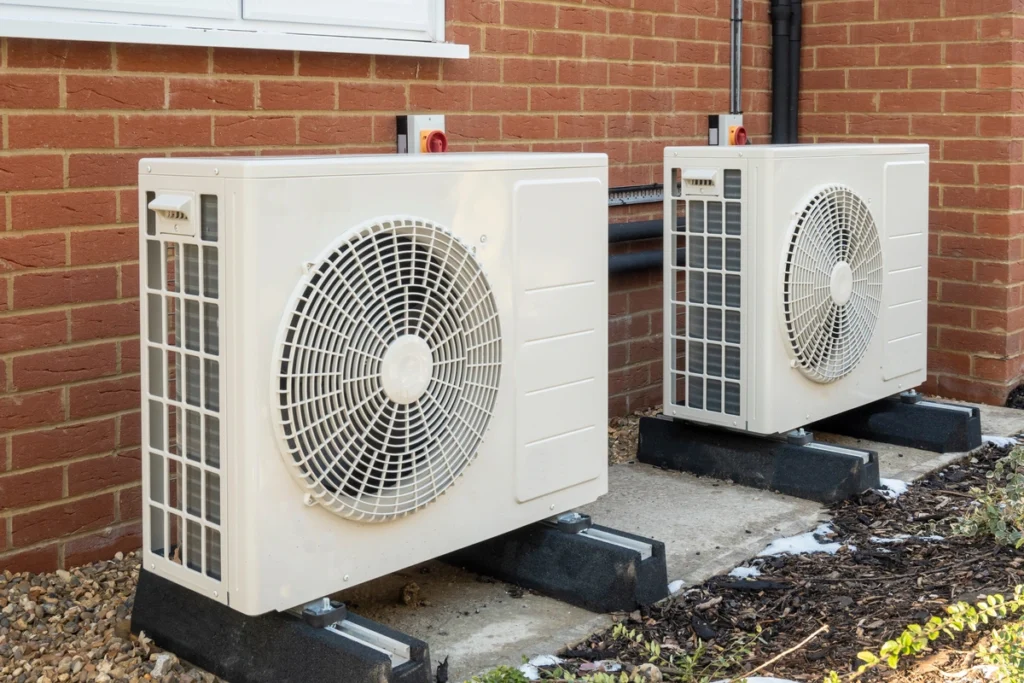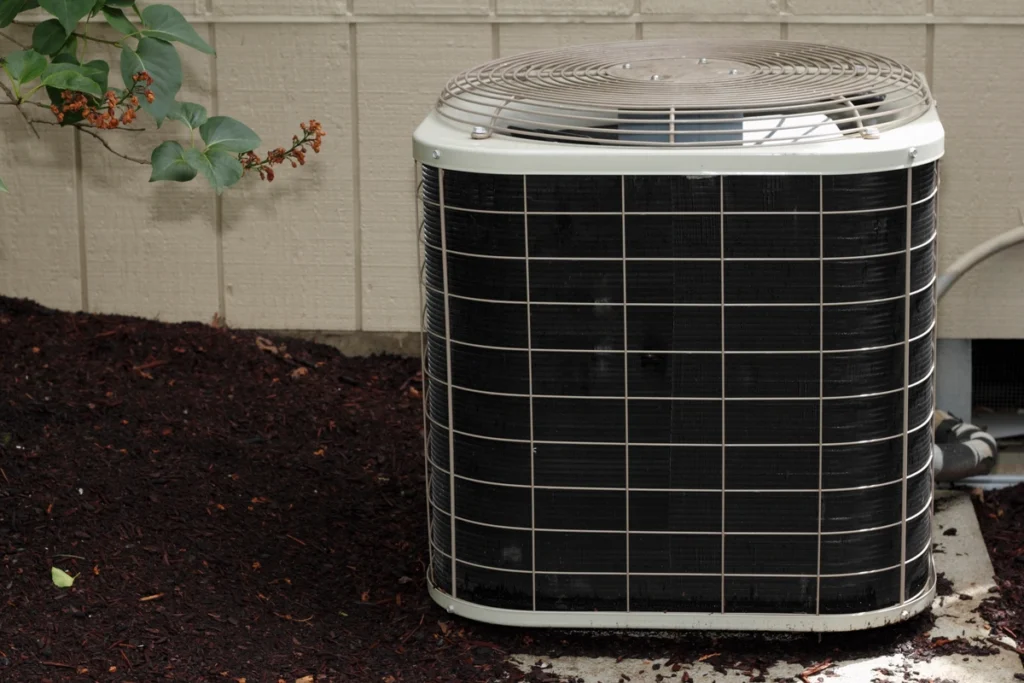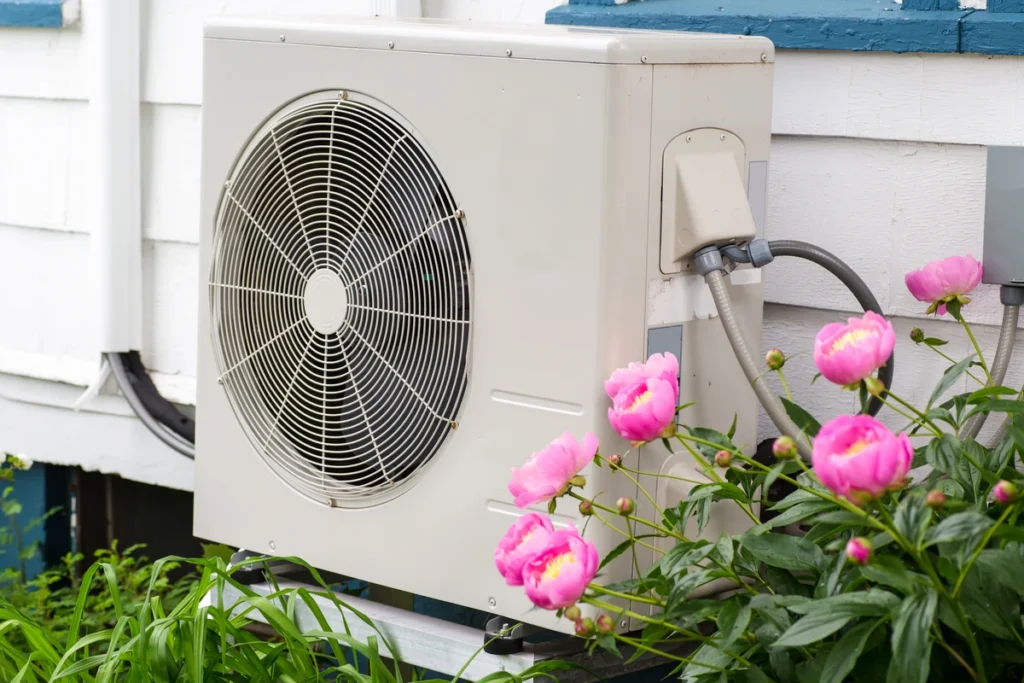Are you deciding between a heat pump or an air conditioner for your home? Understanding the differences between these two systems is crucial to selecting the best HVAC solution for your comfort, energy efficiency, and budget. Below, we’ll break it down for you with easy-to-understand comparisons. Here’s what we’ll cover:
- Heat pump vs. air conditioner: what’s the difference?
- Top 5 differences between heat pumps and air conditioners
- Factors to consider before choosing
👉 Heat Pumps vs. Air Conditioners: What’s the Difference?

Understanding the basics of heat pumps and air conditioners is key to comparing their functionality.
Heat Pump
A heat pump is a versatile HVAC system that provides both heating and cooling for your home. It extracts heat from the air or ground outside your home, transferring it indoors during winter and reversing the process in the summer to cool your home.
Air Conditioner
An air conditioner is designed solely for cooling. It removes warm air from inside your home and releases it outside, replacing it with cooler air. Paired with a furnace or heating system, central air conditioners are a popular option for many households.
Key Differences in How They Work
- Heat Pumps: Operate year-round for heating and cooling, moving heat rather than generating it, making them energy-efficient. They can be air-source (drawing heat from the air) or ground-source (using geothermal heat).
- Air Conditioners: Focus solely on cooling during warm seasons, using refrigerant cycles to exchange heat and deliver cool air. They are often paired with a furnace or heating system for year-round comfort.
⚖️ 5 Differences Between Heat Pumps and Air Conditioners

Here’s a quick guide to help you compare the two systems and decide which one suits your needs.
1. Purpose
Heat pumps and air conditioners serve different primary purposes. A heat pump is a dual-purpose system capable of both heating and cooling your home, making it a versatile option for year-round comfort. In contrast, an air conditioner is designed for a single purpose: cooling. It is specifically engineered to lower the temperature indoors during warm weather but will require a separate system, such as a furnace, to handle heating needs in colder seasons.
2. Energy Efficiency
When it comes to energy efficiency, heat pumps stand out due to their ability to transfer heat rather than generate it. This makes them incredibly energy-efficient, particularly in regions with mild climates where extreme temperature shifts are uncommon. On the other hand, air conditioners are efficient during cooling seasons but rely on pairing with another system, like a furnace, for heating. The overall energy efficiency of an air conditioner depends largely on the efficiency of the accompanying heating system.
3. Climate Suitability
The climate you live in plays a major role in deciding between a heat pump and an air conditioner. Heat pumps perform exceptionally well in moderate climates, where temperatures are relatively stable year-round. However, in extremely cold weather, traditional heat pumps may struggle to operate efficiently unless you invest in a cold-climate model designed for harsher conditions. Air conditioners, on the other hand, are a better fit for warm climates where cooling is the main priority. They deliver consistent cooling performance regardless of outdoor temperatures.
4. Cost
The upfront and operating costs differ significantly between heat pumps and air conditioners. Heat pumps generally have a higher initial cost due to their dual-functionality and advanced technology. However, their energy efficiency can lead to significantly lower operating costs over time, resulting in long-term savings that often offset the initial investment. Air conditioners come with a lower upfront price tag, which can be appealing for those on a tighter budget. That said, air conditioners may lead to higher energy bills, especially when paired with an inefficient heating system during colder months.
5. Lifespan
The lifespan of heat pumps and air conditioners also varies. Heat pumps typically last between 10 to 15 years, depending on usage and maintenance routines. While they are effective, certain models may require more frequent upkeep to maintain optimal performance. Air conditioners, on the other hand, tend to have a slightly longer lifespan, averaging 15 to 20 years with proper maintenance. This makes them a more durable option if longevity is a key factor in your decision.
🔎 Factors to Consider Before Choosing

When deciding between a heat pump and an air conditioner, consider the following:
Your Climate
When deciding between a heat pump and an air conditioner, your local climate plays a big role. Heat pumps are most effective in regions with mild winters, as they can both heat and cool your home efficiently. However, in areas with extremely cold winters, their heating ability may become less effective, and a supplementary heating source may be needed. On the other hand, air conditioners are ideal for hot climates where cooling is the primary concern, offering reliable performance even during peak summer heat.
Budget
Your budget is another crucial factor to consider. Heat pumps often have higher upfront installation costs compared to air conditioners, but they can save you money in the long run through lower energy bills since they provide both heating and cooling. Air conditioners, while typically less expensive to install, may require additional heating systems in colder months, which could increase overall costs. Carefully calculate both initial expenses and long-term energy savings to see which option aligns best with your financial plan.
Energy Efficiency
Both heat pumps and air conditioners come in high-efficiency models, so it’s important to compare their energy performance. Check the SEER (Seasonal Energy Efficiency Ratio) rating for cooling efficiency and, in the case of heat pumps, the HSPF (Heating Seasonal Performance Factor) rating for heating efficiency. Higher ratings mean better energy efficiency, which can translate to lower utility bills. Make sure to choose a system that balances performance with energy savings for your needs.
Compatibility
Before making a final decision, assess if your current HVAC system can support your choice. Heat pumps are versatile but may require modifications to your existing setup, especially if you’re moving from a heating-only or cooling-only system. Air conditioners are generally easier to integrate with traditional furnace systems but don’t offer the dual functionality of a heat pump. Consulting a professional can help ensure your new system works seamlessly with your home’s current infrastructure.
🏠 Heat Pump Differences
When it comes to choosing between a heat pump and an air conditioner, making the right decision can significantly impact your home’s comfort and energy efficiency. At Palmetto Air Conditioning, we bring over 20 years of experience, unmatched expertise, and a commitment to personalized service to every job. From tailored recommendations to reliable 24/7 support, our family-owned business is dedicated to ensuring your HVAC system meets your unique needs.
Ready to find the perfect solution for your home? Contact us today for a consultation and let our trusted team help you stay comfortable year-round!
